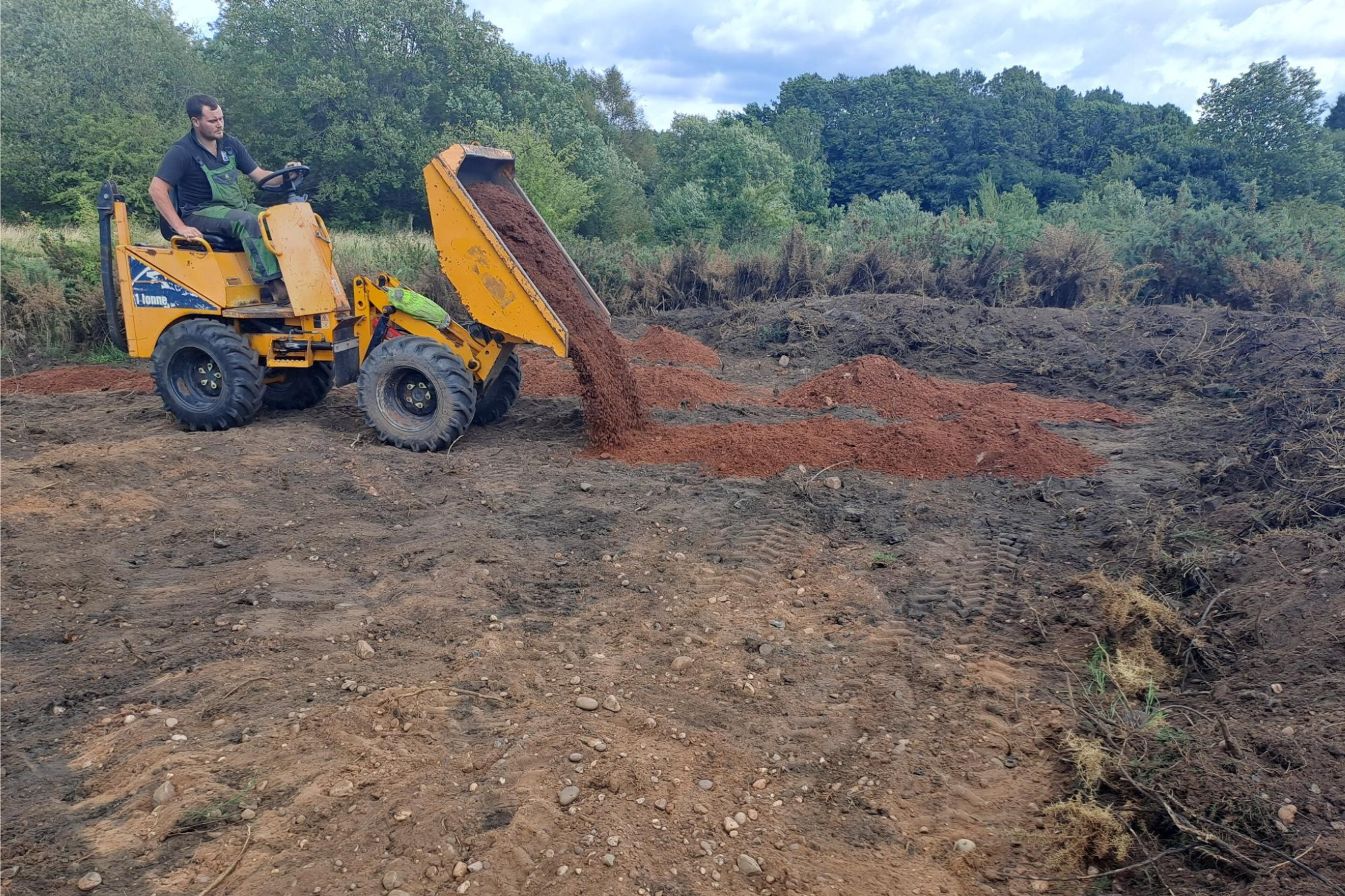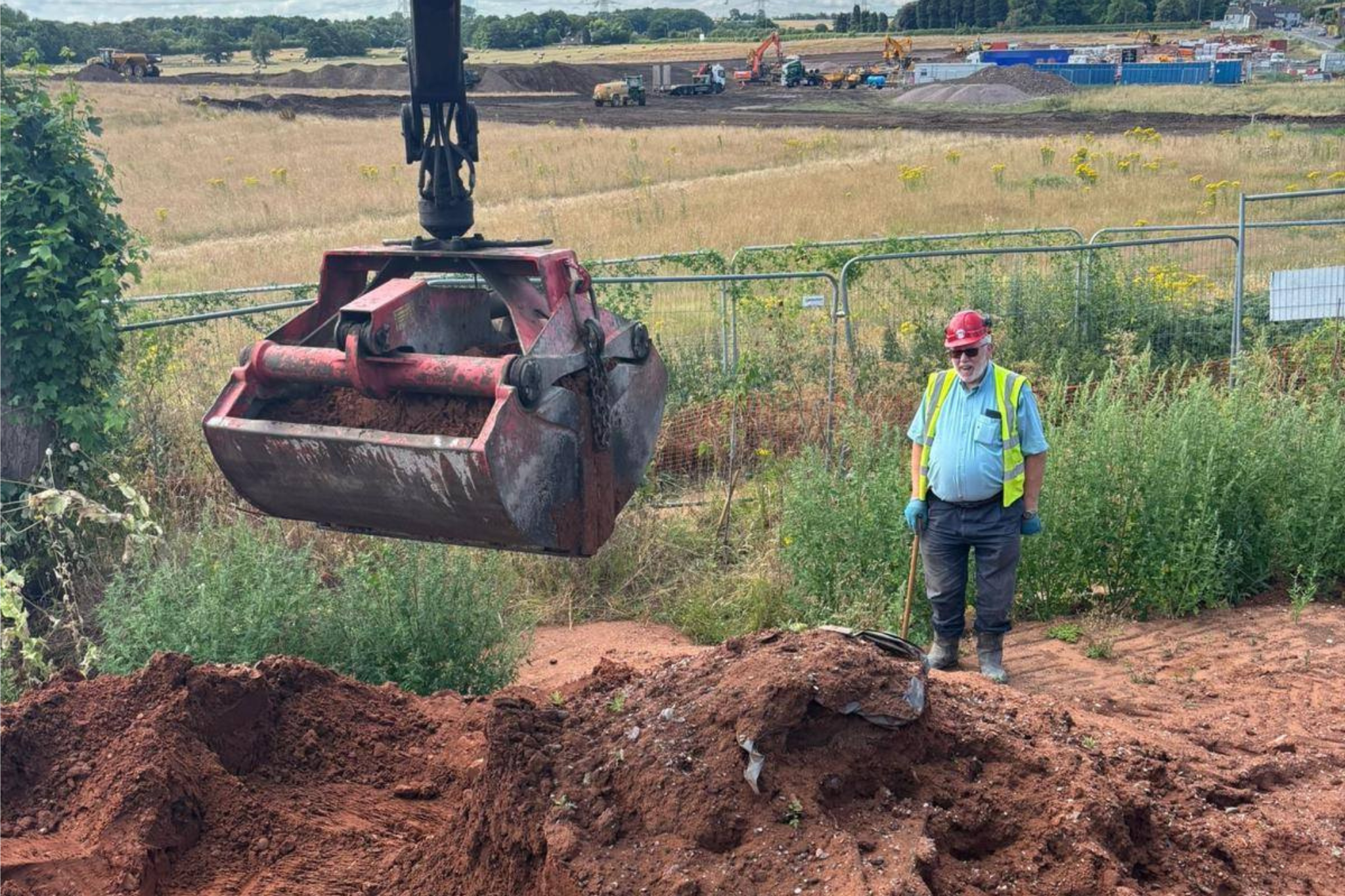Parks and countryside
Sand donation supports rare bee habitat
Published on
Around 10 tonnes of sand has been donated to support ongoing work to create ‘bee beaches’ at Pelsall North Common.

The sand was collected as part of ongoing work at Tamworth Road Narrows carried out by Lichfield & Hatherton Canals Restoration Trust (LHCRT).
This has now been put to use to create a further two ‘bee beaches’ at Pelsall North Common.
This conservation effort is part of the Purple Horizons Nature Recovery Project, led by Natural England. The work involves using diggers to remove vegetation and create bare ground areas - known as ‘bee beaches’ - which are crucial habitats for many threatened pollinators.
The project, now in its second year, has created bee-friendly habitats across seven sites: Shire Oak Park, Barr Beacon, Pelsall North Common, Chasewater Country Park, Brownhills Common, Wharf Lane and Muckley Corner.
“ This is what good partnership work looks like.
“To make use of a biproduct of canal restoration work in such a positive way should be celebrated, and I thank Lichfield & Hatherton Canals Restoration Trust for the donation.
“This project continues to go from strength to strength and Walsall is proud to be playing its part in preserving and restoring these habitats.
“

Purple Horizons is being delivered in partnership between Walsall Council, Staffordshire County Council, Lichfield District Council, Natural England, researchers at the University of Birmingham, and the Birmingham and Black Country Wildlife Trust.
Derek Lord, Planning and Technical Trustee at LHCRT, said, “We’re proud to support the Purple Horizons project by repurposing excess sand excavated from the Lichfield Canal channel for such an important conservation initiative.
“Creating sustainable habitats and enhancing biodiversity is one of our core aims. While our focus is obviously along the blue-green corridor of the Lichfield Canal, it’s a real bonus to be able to extend that impact to another location.”
Nationally, around 80% of heathlands have been lost since 1800 and globally the habitat is rarer than a tropical rainforest.
Last year, two ‘near-threatened’ species of bees were spotted thriving at Barr Beacon local nature reserve in Walsall thanks to the project.
The discovery of the Cats Ear Mining Bee (Andrena humilis) and the Cats Ear Nomad Bee (Nomada integra) was made by Aaron Bhambra, a researcher at the University of Birmingham.
Ends